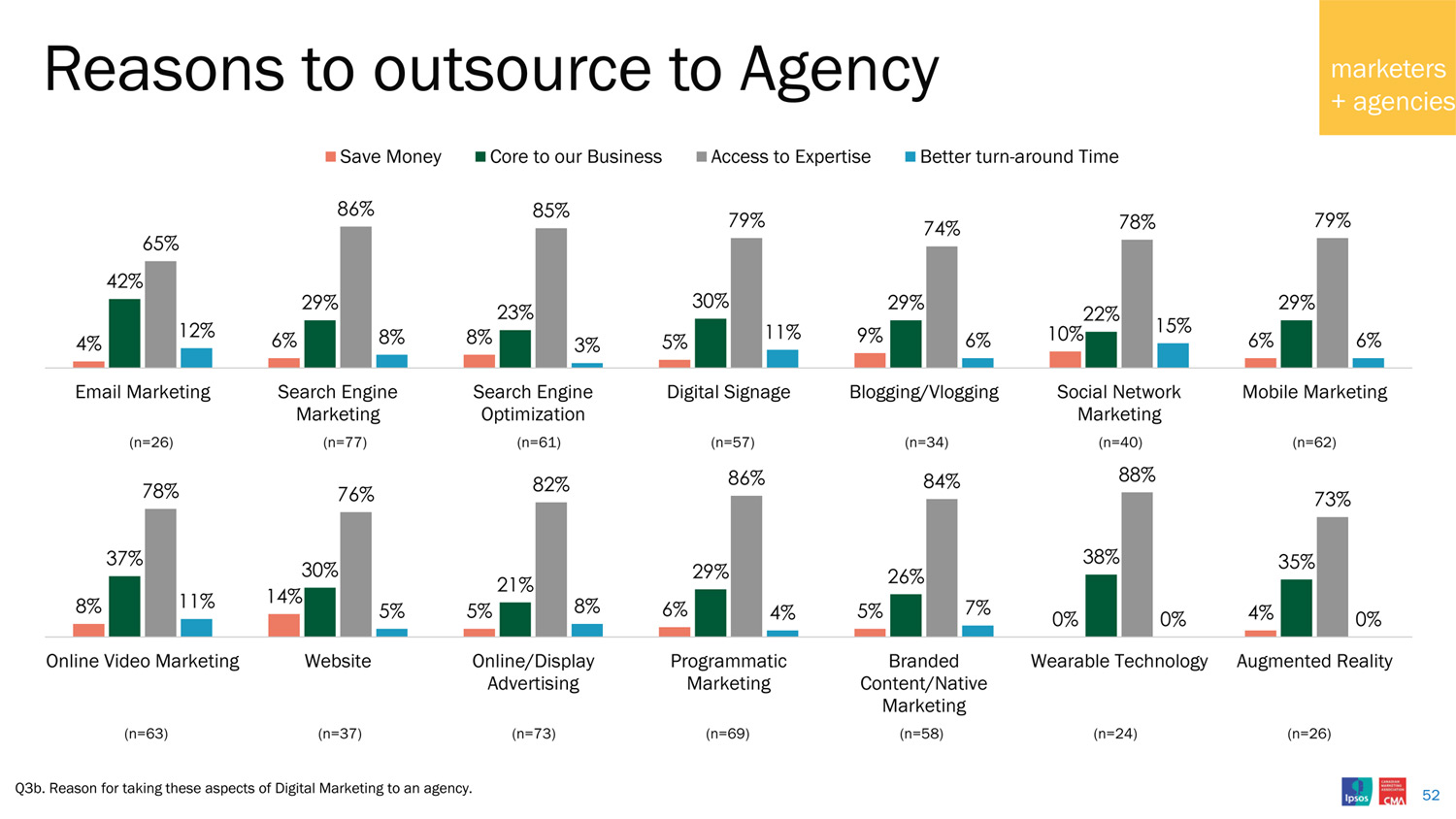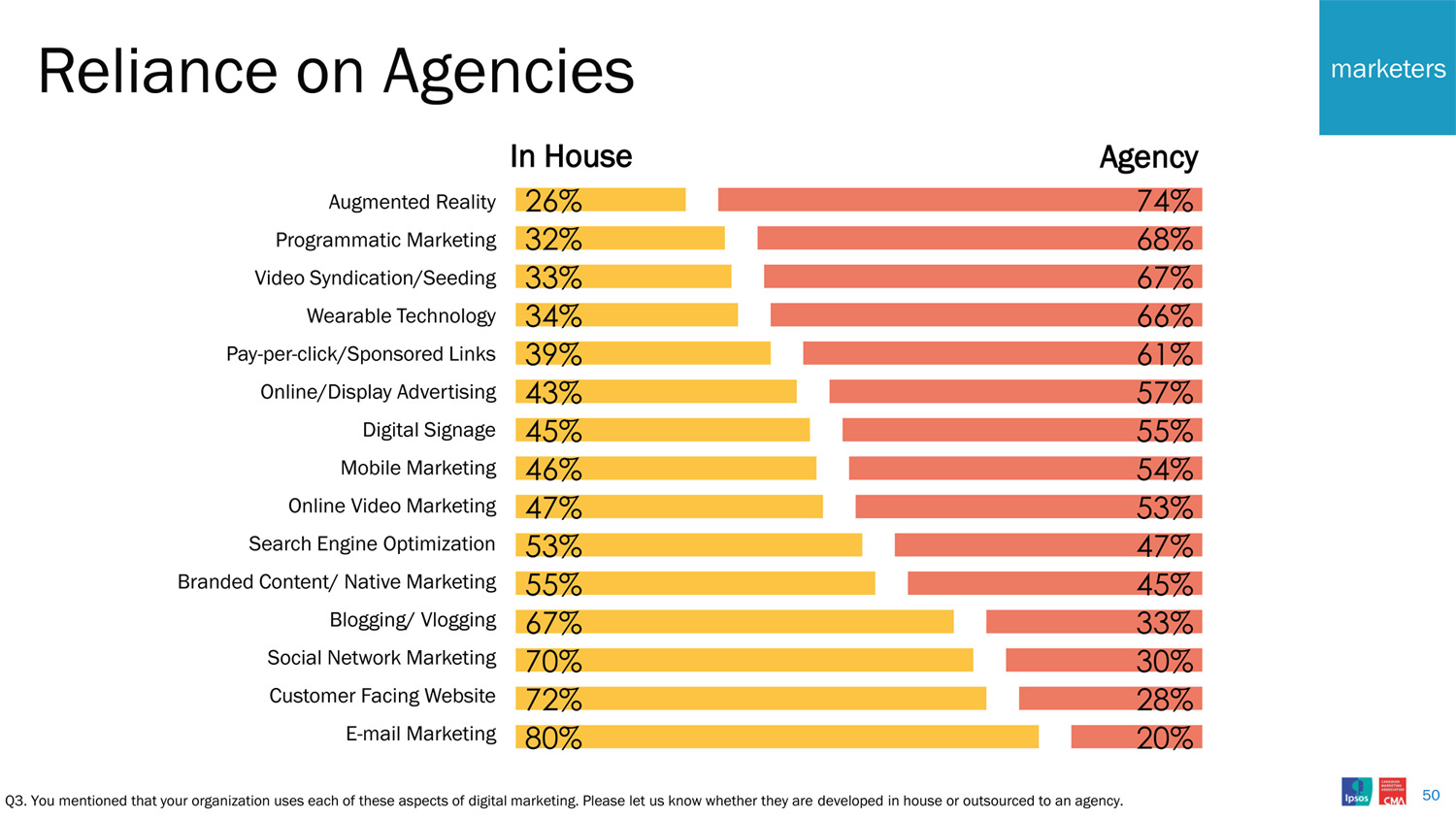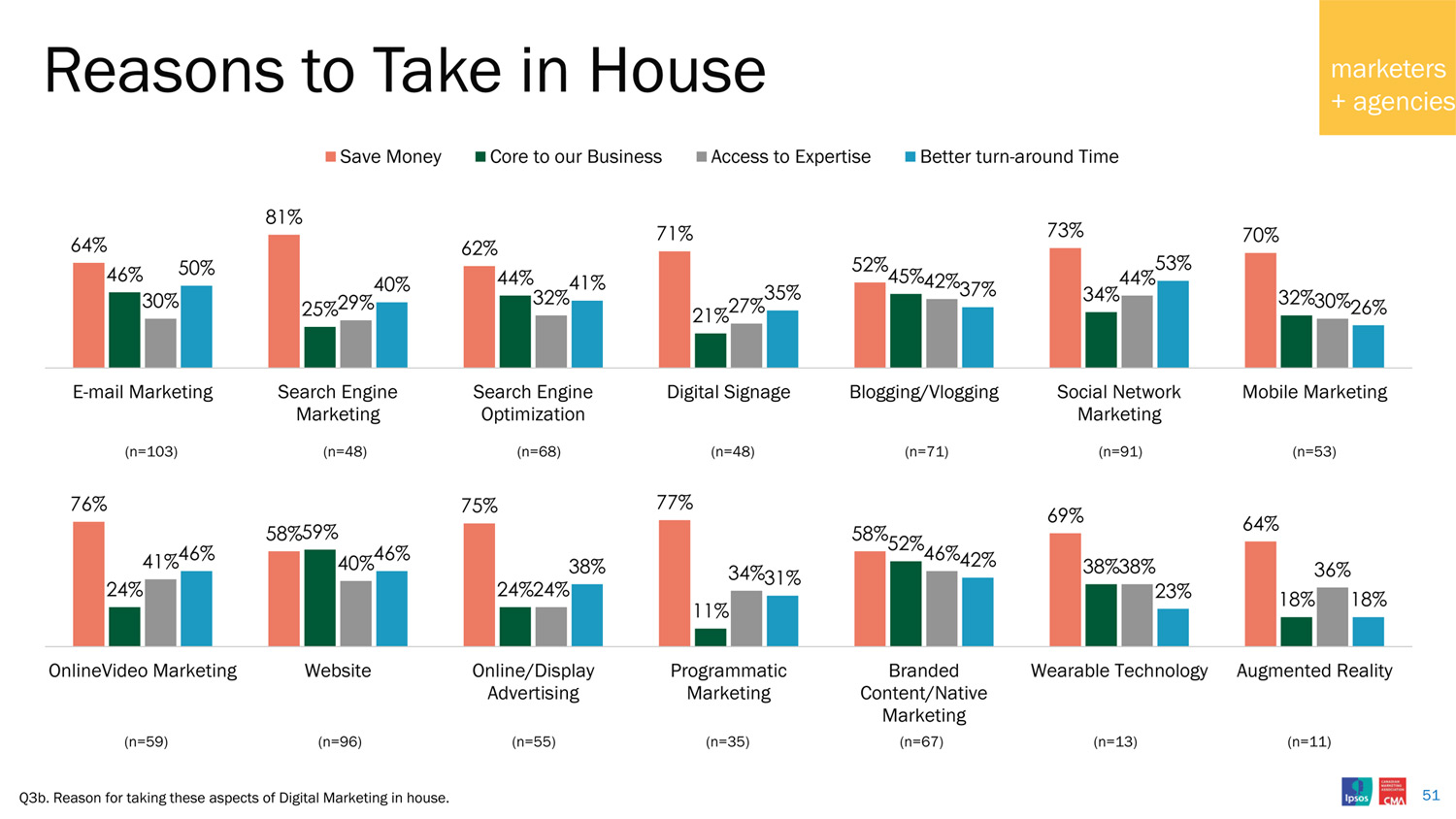
We covered THE IN-HOUSE PHENOMENON over three years ago, but that was in the general marketing context. This research is in the digital marketing context, one that has clearly accelerated the in-house phenomenon over the past 10 years.
Agency Bias
Agencies tell marketers they provide higher technical expertise (through up-to-date formal training and specialisation), better creativity (through deeper and broader experience) and better marketing integration, compared to in-house resources. They may even talk about greater objectivity at the marketing and business strategy levels. Only the first benefit listed above is acknowledged by marketers (clients) in the survey.
In the interest of maximising revenue, agency bias is to get as much of a client’s marketing work as possible. This bias is about making money in the short term, so everyone understands it.
In-House Bias
The most common reasons cited in the survey for using in-house marketing resources are, in order:
- Cost reduction
- Timeliness
- Trust
Curiously, we find the above are in order of ascending legitimacy. This because the full cost of in-house resources is rarely aggregated and quality of the work isn’t considered in the cost calculation. For refresher on the good-cheap-fast trade-off, see BRAIN SURGERY & GETTING WHAT YOU PAY FOR.
In-house resources create their own bias. It’s an existential one. The in-house programmatic buyer wants to continue buying online display advertising in their specialised way. The AR specialist wants to keep augmenting reality. And the architect of the in-house team keeps recommending digital strategies and tactics that keep everyone busy. Even if these activities are not aligned to the current marketing or business strategy.
Business Results Bias
This is the bias that too often gets overlooked, by both parties. It’s the bias that everyone should have, one that goes way beyond marketing execution. It leads all parties to think productively about their respective biases:
Agencies must demonstrate significantly higher expertise in digital marketing specialities or they should expect clients to bring those specialties in-house. They also need to get better at communicating expertise in marketing strategy and how that benefits digital execution. No comment on the critical trust issue because that’s just too obvious.
Marketers need to be smart about the total cost of in-house resources and must include quality of work for decision context. They must also be aware of their natural in-house bias.
And both parties need to commit to a business results bias.







